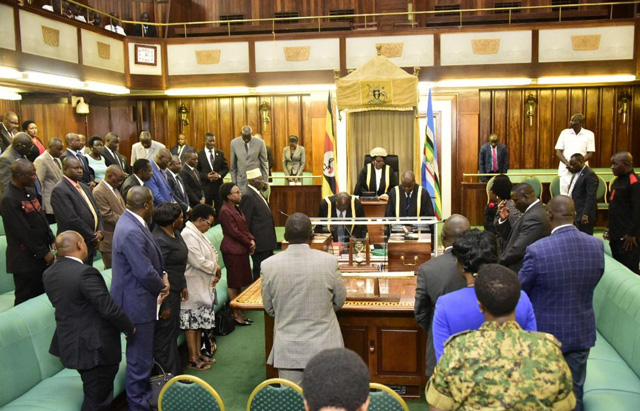
Kampala, Uganda | THE INDEPENDENT | There are mixed reactions from the civil society activists, academicians, politicians and technocrats on the performance of parliament in the in the 2018/2019 financial year.
This came up during the ongoing Third Annual Legislature Sector Review, which is a self-assessment mechanism for Parliament. The assessment is based on the objectives outlined in the National Development Plan-NDP II and the 2016-2020 Parliamentary Strategic Plan.
These include strengthening the institutional capacity of Parliament to undertake its constitutional mandate effectively and efficiently, increasing public involvement and participation in parliamentary business, accountability and scrutiny, enhanced legislation for equitable and sustainable development, effective participation in international engagements and improved work environment for MPs, staff and the public.
According to the Corporate Planning and Strategy Department Director, Moses Bisase, Parliament enacted 77 percent of the planned Bills in the last three financial years, passed 125 percent of the planned resolutions, majority of which were loans to facilitate infrastructure development and completed the audits of the Office of the Auditor General that had been pending for 12 years.
Bisase notes that Parliament among others has also increased public involvement and participation in its business such as holding the annual Parliament week, the Health Week, increased social media presence and public access to committees and plenary.
He however, explains that due to resource constraints, the legislature is still grappling with a backlog in accountability committees including the Committee on Commissions, Statutory Authorities and State Enterprises-COSASE with reports for 7-8 years back.
Bisase says parliament received Shillings 563 billion out of Shillings 975.6 billion required in 2017/ 2018. It also got Shillings 596.4 billion out of the Shillings one trillion needed to implement planned activities in the 2018/2019 financial year.
He notes that some activities may not be implemented by the end of the strategic plan due to delays particularly the construction of the new Parliament Chamber whose progress was 28 percent by end of 2018/2019 the financial year against the target of 50 percent.
While some participants lauded Parliament for fulfilling its constitutional mandate of making laws, representation, appropriating funds and oversight, most of them including the political head of the Institution, Rebecca Kadaga cited several failures and weaknesses.
The Executive Director of Civil Society Budget Advocacy Group (CSBAG), Julius Mukunda commended Parliament for involving other stakeholders other than MPs and parliamentary staff in assessing its performance. He said Parliament has improved in scrutinizing constitutional reports such as the reports of the Auditor General, annual Budget Bills, ministerial policy statements and Bills.
The Leader of Opposition, Betty Aol Ocan proposes that a committee be set up to receive and handle petitions to reduce the burden on the Speaker’s officer, which receives several petitions on a regular basis.
Prof. Augustus Nuwagaba, an Economist faulted Parliament for abdicating its oversight role and has instead become a “rubberstamp” that approves business from the Executive especially loan requests, which has resulted in a total public debt of about Shillings 42 trillion. The World Bank recommends a 50 percent debt to GDP ratio.
However, Kadaga told Nuwagaba that the Executive rejected a proposal in the Public Private Partnership Bill that parliament should scrutinize loan agreements before they are signed.
Kadaga also noted Parliament’s weak points that must be addressed including the need for a stronger link between Parliament and the public through field visits and establishment of a citizen’s engagement platform.
She also noted the total absence of reports on the annual reports of Ministries, Departments and Agencies that are presented to the House particularly reports of the Inspector General of Government-IGG. Kadaga also advanced public vetting of presidential nominees sent to the Appointments Committee for approval as a way of increasing transparency.
The annual sector review is aimed at identifying achievements and challenges that could inform planning and implementation of the next financial year.
*****
URN
 The Independent Uganda: You get the Truth we Pay the Price
The Independent Uganda: You get the Truth we Pay the Price


